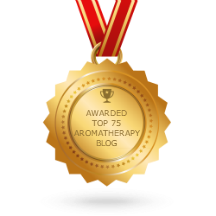My friend and client, Mikki Melinda Anderson, of StressBusters Spa in Laguna Hills CA has taken a brave stand against dangerous practices in the Spa and Massage industries. I'm glad she allowed us to share her writing here.
StressBusters’ Policy on Aromatouch and Raindrop Therapy
Mikki M. Anderson, Clinical Aromatherapist, StressBusters
- It promotes the unsafe use of essential oils, putting people at risk of skin irritation.
- There is no published empirical substantiation to support its claims that RDT is a “tool for assisting the body in correcting defects in the curvature of the spine, such as scoliosis” and other claims.
In my several thousand hours of formal accredited Aromatherapy education, I have learned that these therapies are disapproved by (but not limited to):
- All reputable aromatherapy schools
- All professional Aromatherapists, (sample: http://www.aromaceuticals.com/blog/raindrop-therapy-unsafe-questionable),
- Robert Tisserand (author, “Essential Oil Safety” 2014) (see below)
- Aromatherapy Registration Council. (http://aromatherapycouncil.org/?p=44)
- Reputable non multi-level marketing essential oil companies (sample: http://www.naturesgift.com/RDT.htm).
- Alliance of International Aromatherapists: http://www.alliance-aromatherapists.org/aromatherapy/aromatherapy-safety/#neat
- National Association of Holistic Aromathery (NAHA)
- Giselle Basturay (Clinical Aromatherapist, mother and store owner sums it up on her website: http://www.granolaliving.com/2012/07/why-we-dont-offer-doterra-young-living-or-other-multi-marketing-brands-of-essential-oils/#comment
Robert Tisserand, the foremost expert on Essential Oil Safety states:
In regard to safety, the application of undiluted essential oils to the skin is controversial. It is proscribed by most aromatherapy schools and practitioner associations. Trade organizations such as the UK’s Aromatherapy Trade Council require their members to include a safety statement on bottles of essential oils to the effect that the oil should not be used undiluted on the skin. On the other hand, the ‘raindrop technique’ involves the application of undiluted essential oils. (Tisserand, 2014).
There are reasons for avoiding this practice, especially in vulnerable groups such as infants, children, and elderly or for a multitude of health conditions and aromatherapy treatments should be based on the overall health of the client. The risk of skin reactions increases with essential oil concentration (Tisserand 2014, pg 72) and the widespread use of raindrop technique could lead to an escalation of skin allergy to essential oils. Undiluted thyme and oregano oils, for example, pose a risk of skin irritation. Second, when essential oils are applied undiluted to the skin, percutaneous absorption may lead to relatively high constituent concentrations in the bloodstream, which increases the risk of systemic toxicity. Wintergreen oil, for example, is moderately-to-severely toxic, and many basil oils are potentially carcinogenic, with recommended dermal use levels of below 2%. Finally, the risk of drug interactions is greatly increased with the use of undiluted oils.
Tisserand goes on to state “encouraging untrained people to apply concentrated essential oils to themselves or others is unwise and unsafe. “ Battaglia in his book states that improper use of undiluted oils can cause toxicity, skin reactions, neurotoxicity, hepatotoxicity (in the liver) and is a hazard during pregnancy (Battaglia, 2003).
To be safe then, spas offering Raindrop or AromaTouch should offer them exclusively to perfectly healthy, non-stressed, young, flawless skin and apply the oils only to a one inch area on the bottom of the feet. Amusing thought that they do that, isn’t it?! Furthermore, educated Aromatherapists would have tested all oils used in these treatments (diluted of course) by a 24 hr. skin patch on the client prior to any treatment on a potentially reactive client (Peterson, 2014). Do the spas offering these treatments do this? Hardly!
Furthermore, proponents of these therapies claim ridiculous and false benefits for this use of essential oils Most of these practitioners of the therapies are devoid of any reputable essential oil education whatsoever outside of the MLM Company that is selling them the oils and blindly follow the hype generated by the company. Any degree of success in their clients has actually caused more likely from other reasons than the AromaTouch or Raindrop Therapy. Furthermore, the harm these therapies have caused is REAL and well documented.
While we believe and promote the use of Aromatherapy and Clinical Aromatherapy and have seen fabulous results in alleviating insomnia, enhancing profound relaxation, reducing anxiety and stress, reducing nausea and pain and promoting a wondrous sense of well-being, the application must be administered properly and with a proper client history. Consequently, we stand AGAINST BOTH RAINDROP THERAPY AND AROMATOUCH.
StressBusters Wellness Spa has been cutting edge with our therapies for 24 years. However, 100% of the time we do time-consuming research in order to insure the public that the service is not only SAFE but also that our therapists have gone through the best education in the respective therapy and are qualified to provide it. We have NEVER “educated” our staff through classes provided by our retail vendors as do other spas. We believe in best practices…. Attending reputable schools and offering SAFE therapies that do not cause harm. We even research the schools themselves as there are some unethical diploma pushers out there. Consequently, our offerings are SAFE as well as effective and that is a promise that you can trust.
References
Battaglia, Leo, 2003, The Complete Guide to Aromatherapy, International Center of Holistic Aromatherapy, Austrialia, pg. 148Peterson, Dorene, American College of Healthcare Sciences, Portland, Oregon 2014
Tisserand, Robert, 2014, Essential Oil Safety, Churchill Livingstone, New York
Uter, W., Schmidt, E., 2010, Contact Allergy to Essential Oils: Current Patch Test Results (2000-2008) from the Information Network of Departments of Dermatology. Contact Dermatitis 63-, 277-283



No comments:
Post a Comment